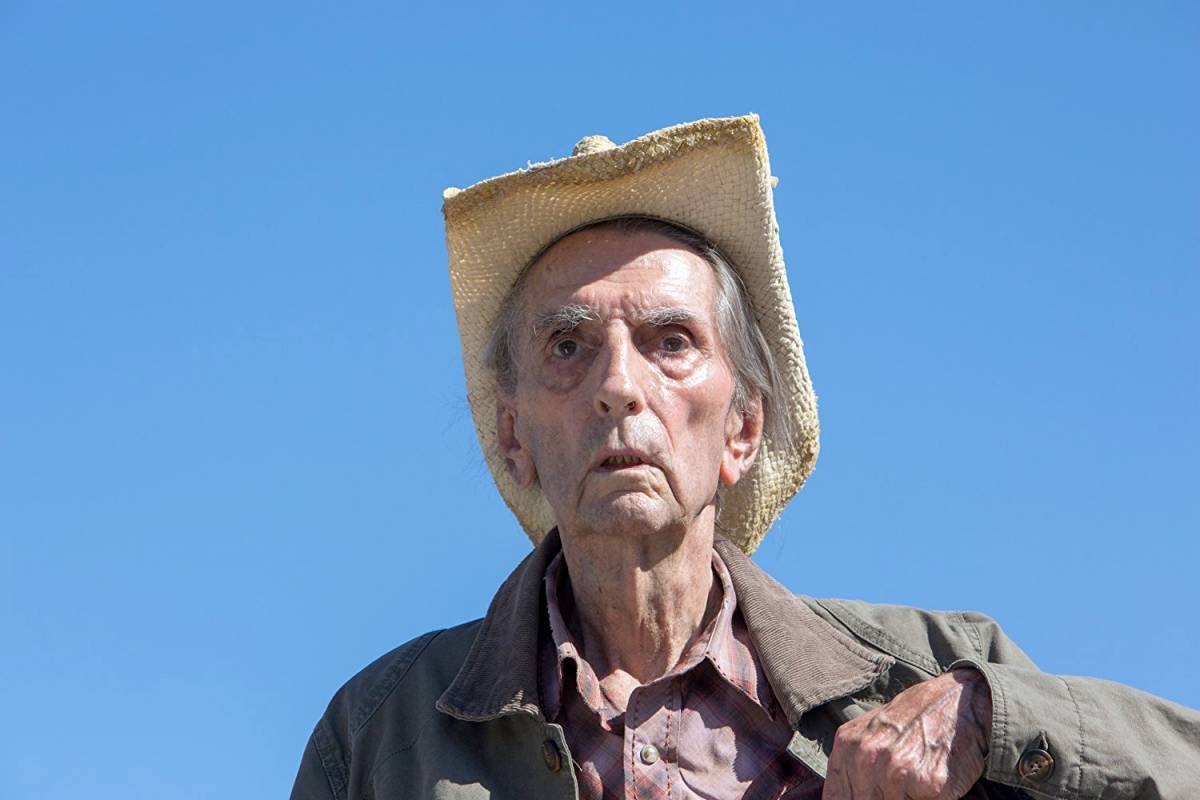Starring Harry Dean Stanton
The opening credits tell us that “Harry Dean Stanton is Lucky,” the yellow typeface recalling an old western, the star’s thin grey face framed inside a blazing blue sky. Here’s our first cue that actor and character will converge over the course of this film’s 90 minutes, in the second-to-last movie Stanton shot before dying on September 15, and one of only a handful of starring roles the inveterate scene-stealer was given in a 60-year career.
Many of those largely plot-free minutes are spent observing, à la Paris, Texas, this bowlegged, 90-something relic simply walking through the desert. There are other callbacks: muttered “bullshits” flown in from Repo Man ; Stanton and his Nostromo captain, Tom Skerritt, trading war stories. Here and elsewhere, the allusions point to the impending death of a very old man, which Lucky reckons with in any number of sometimes bullish, sometimes achingly vulnerable ways.
His doctor (Ed Begley Jr.) crankily admits that the three-packs-a-day Lucky is better off smoking than not, before delivering the kind of speech about mortality you don’t tend to hear in movies these days, if you ever did. And so death hangs over this thing like one of the threadbare awnings you might find in Lucky’s dry gulch of a town, as it did in the Twin Peaks reboot that similarly employed Stanton’s sheer embodiment of human life pacing through its final days with a kind of unshrinking, if fragile, grace.
Speaking of: David Lynch shows up as Lucky’s best friend Howard, mourning the loss of his pet tortoise, President Roosevelt. It’s one of the film’s heavy (and funnier) contrivances that works partly because we want it to, and partly because director John Carroll Lynch (no slouch as a character actor himself in films like Fargo and Zodiac) is careful not to intrude.
Among a supporting cast committed to giving Stanton/Lucky a gallery of warily affectionate foils, Beth Grant steals a few of her own scenes as the local bar owner. Less showily, Bertila Damas is a storekeeper who invites the old coot to a Mexican birthday party, where Stanton—having earlier denounced the very idea of a “soul”—breaks into an indescribably moving version of “Volver Volver”. We should consider ourselves Lucky too.
Georgia Straight, October 2017
